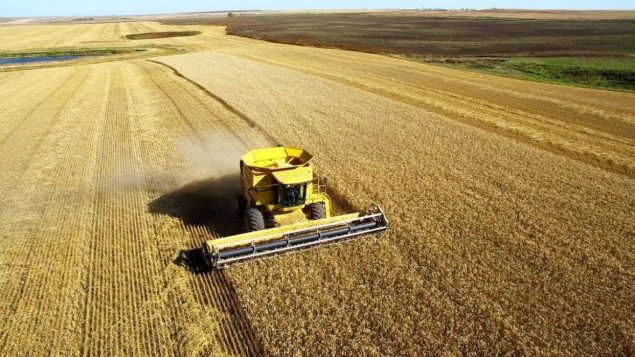Another major grain processor in Canada has said it will no longer accept oat crops that have been sprayed with glyphosate used as a pre-harvest dessicant starting as of January 2021.
Glyphosate has become a controversial herbicide used as the active chemical in Monsanto’s Roundup brand. There has been debate about potential harmful effects on human health connected with the product. A California court in 2018 awarded $289 million to a groundskeeper who claimed exposure to Roundup caused his lymphoma cancer.
There have also been claims that trace elements of the chemical have turned up in popular oat cereals and in such things as granola bars. The Washington-based non-profit Environmental Working Group said independent lab tests found 43 of 45 samples of products made with conventionally grown oats contained traces of the herbicide.
Now Richardson International says starting next year no oats will be accepted that were pre-harvest treated with glyphosate. Richardson has processing mills in Alberta, Saskatchewan and Manitoba.
The decision means a major oat buyer will join another major operation in Saskatchewan, Grain Millers, which stopped buying pre-harvest glyphosate treated oats in 2015.
Farmers have been using the product as a late season weed killer and as a dessicant measure in the event of late harvest rain which can reduce quality of the crop.

Richardson Milling in Portage la Prairie Manitoba. Richardson International has a variety of grain operations in Canada as well as a mill in the US, and in 2017 added European Oat Millers in England to its group. ( Richardson Int’l)
Glyphosate has become one the most widely used herbicides in agriculture and has been declared safe by Health Canada and the U.S Environmental Protection Agency when used properly. However, the cancer research division of the World Health Organisation lists the chemical as a probable carcinogen.
Bayer, which now owns Monsanto, recently set aside $10 billion dollars to resolve the vast number of lawsuits in the U.S. from claims that exposure to the chemical contributed to their cancers.
Both Richardson and Grain Millers say consumer pressure is part of the reason for their policies. Last year General Mills and Pepsico (Quaker Oats) makers of a number of breakfast cereals and oat snack products have been asking suppliers to reduce the use of pesticides on their crops.
Analysts say the move by oat buyers may result in a reduction of oat acres and/or increase in prices. Saskatchewan is the largest grower of oats in Canada, and Canada is the largest exporter of oats in the world.
Additional information-sources
- Western Producer: R.Arnason: Major oat buyer to ban pre-harvest glyphosate
- EWG- Aug 15/18: Roundup for breakfast?
- Grain Millers Saskatchewan- glyphosate policy statement
- Western Producer: R Arnason: Aug 29/19: General Mills uses contracts to avoid glyphosate
- CBC: C Arsenault: Feb 5/20: A U.S. court blamed Roundup for causing cancer, then Canada defended the herbicide, emails show







For reasons beyond our control, and for an undetermined period of time, our comment section is now closed. However, our social networks remain open to your contributions.